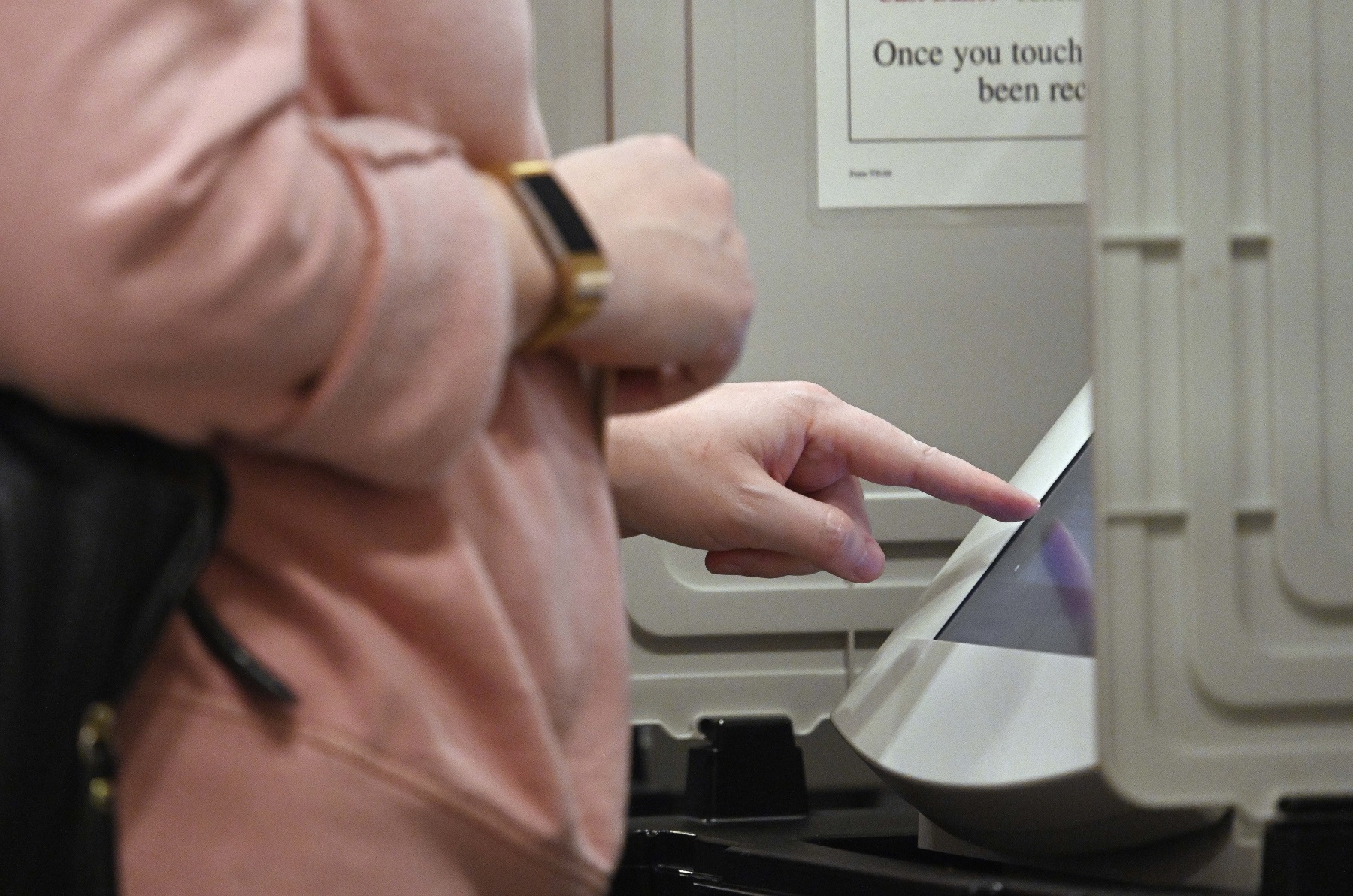Taking A Look At The Race For Georgia Lieutenant Governor

A Marietta voter casts a ballot ahead of Tuesday’s general election. One of the races Georgians are voting on is the candidate who will be the state’s next lieutenant governor: Democrat Sarah Riggs Amico or Republican Geoff Duncan.
Mike Stewart / Associated Press
While their names may not be as well known as those at the top of the ticket, the candidates for lieutenant governor are running a tough race, too. Both are “outsiders” to the Georgia Senate, which could make things interesting.
According to the Georgia Constitution, the lieutenant governor takes over if the governor is incapacitated and serves as the president of the state Senate.
He or she usually also appoints senators to committees and steers legislation. But that isn’t a guarantee.
“The lieutenant governor only has the power that the senators give him or her,” said Pierre Howard, who served as lieutenant governor in the 1990s.
Howard kept all those powers while in office, but Mark Taylor, who succeeded him, did not.
Taylor was re-elected in 2002 as a Democrat, the same year the state Senate became majority Republican, and senators took away his power to influence committees and legislation.
Republican senators also did that to Republican Lt. Gov. Casey Cagle when he fell out of favor with them. Cagle did manage to get those powers back.
Both candidates for lieutenant governor this cycle are “outsiders” to the state Senate, which means, according to Taylor, either are at risk of having those powers checked.
Republican candidate Geoff Duncan said his outsider status was an advantage in the primary. He beat Senate insider David Shafer, a longtime party leader in the chamber.
“I think Georgia was ready to see somebody that was an outsider,” he said. “I think Georgia was ready to see somebody that’s a small business guy, that voted his conscience in the General Assembly in the five years I was there.”
Despite that, he said he doesn’t expect any limits to his powers if elected.
“I know the senators. We have established a solid relationship and will work together just fine,” Duncan said. “I don’t know why they would curtail the powers of the lieutenant governor if it’s me: the Senate needs a unified front in negotiations with the House and the governor on the important issues of taxes, spending, education and job creation.”
“There’s always a potential for the Senate to take the power away from the lieutenant governor if the lieutenant governor cannot organize his or her affairs in such a way that he or she commands the support of at least 29 senators,” Howard said.
However, he expects the senators to “accept the will of the people” going into the session.
“I don’t think either side can feel totally comfortable in having a grip on power right now, which is probably a good thing.”
The Democratic candidate, Sarah Riggs Amico, is a businesswoman without political experience.
She’s aware of what a Republican Senate could try to do.
“Am I worried about whether they’re going to try to shove me into the ‘Harry Potter’ broom closet downstairs at the Capitol? No, absolutely not,” she said. “Every time you try to subvert the will of the voters, I will make it my mission in life to expose it. I want voters to know what happens in these backroom political deals that block progress for people in the name of politics.”
While the Senate can take away powers, it can’t take them all away.
“The lieutenant governor has constitutional authority that the 56 senators, who wake up every morning and see a lieutenant governor in the mirror, cannot do away with,” Taylor said.
That means, Taylor said, that even without the ability to appoint committee chairs, the office still has influence.
“There are daily events in the care and feeding of 56 state senators that cause them to be very much in need of assistance from the presiding officer.”
Another power that can’t go away? The bully pulpit.








